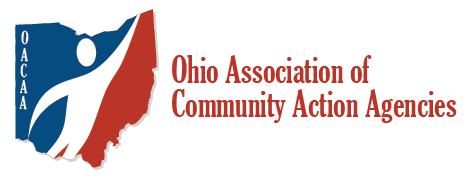Volunteers are vital to the success of Community Action’s mission. Last year, over 37,000 volunteers in Ohio gave over 1.6 million hours of their time, energy, and talents to support the programs and services throughout Ohio’s Community Action Agencies. Those hours are invaluable, and without them, our network may not be as impactful.
Though volunteers are not employees, it is important to provide orientation, training, and guidelines for their roles within the agency. Doing so builds both your and their confidence in their work. An orientation checklist ensures things are covered, and lets volunteers know who to find for any unanswered questions.
When thinking about the tasks, consider the following:
- What do volunteers need to know to complete the tasks?
- What tools are necessary?
- How will they be trained?
- Who will be part of their team?
- Who will lead their efforts and answer questions?
In addition to task-specific training and information, it is recommended that the following information is provided to all volunteers.
Mission and Vision Statements
Let your volunteers know the work they are doing contributes to the success of the organization.Rules and Policies
Share relevant rules and policies with your volunteers so there are no surprises. Let your volunteers know that all staff and volunteers are expected to follow the agency’s code of conduct.Confidentiality
Volunteers usually must maintain confidentiality for customers, staff, other volunteers, and more. Limiting network and file access is one way to do this, but it only covers a portion of confidential information encountered at our agencies. Review the agency’s policy to ensure volunteers understand it and why it is necessary.Cultural Sensitivity
With diverse client populations, volunteers need to respectfully respond to individual needs regardless of cultural/religious beliefs. Are your clients treated with respect?Supervision
Be sure to review this information to all volunteers so they know their primary contact. Also review the expectations of the supervisor, how closely they will be monitored, how to report problems or injuries, and how to schedule their time.Background Checks
Develop a written policy detailing required background checks for volunteers and legal requirements, and share this with potential volunteers. Background checks can be obtained at the local city or county police station, though there is often a small fee involved. Credit reports may be performed if volunteers have significant dealings with cash.References
For volunteers who are working with clients or sensitive information, references may be a vital step in vetting the volunteer. Be sure to consider this when developing your policies.
Volunteerism should be a great experience for both the volunteer and the agency. With a little work, volunteers can be matched to the area that best aligns with their skills and interests making the relationship successful from the start.
Lorie has been with OACAA since November of 2004. She is a certified trainer in the Prep® Within My Reach curriculum, and Love’s Cradle® curriculum, Family Development Specialist and Family Development Specialist Trainer, and she is a certified Personal Financial Teacher. She is directly responsible for managing all of OACAA’s Training and Technical Assistance (TTA) and other funded programs.
